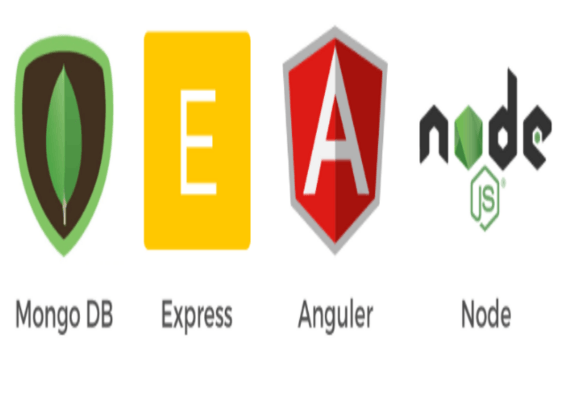
Overview of Full Stack MEAN Developer
A Full Stack MEAN (MongoDB, Express.js, Angular, Node.js) Developer in Tiruvannamalai, trained at a leading software institute in the region, is a professional skilled in end-to-end web development using the MEAN stack technologies. MongoDB serves as the NoSQL database, Express.js as the backend framework, Angular for front-end development, and Node.js for server-side JavaScript execution.
This comprehensive skill set, honed through the mean stack course offered at the institute, allows developers to seamlessly handle both the client and server sides of web applications. On the front end, developers use Angular to build dynamic and responsive user interfaces, while Express.js and Node.js facilitate server-side logic and API development.
MongoDB, a document-oriented database, is employed for data storage and retrieval, imparted through the mean stack course curriculum. Full Stack MEAN Developers trained at the software institute in Tiruvannamalai are adept at creating scalable and efficient applications, leveraging the benefits of a single language (JavaScript) across the entire development stack.
This proficiency enables them to design and deploy feature-rich, real-time applications with a focus on performance, scalability, and a cohesive user experience, meeting the demands of modern web development. As a result, they are sought after as full stack MEAN developers in Tiruvannamalai and beyond.
Syllabus
- • Overview of full-stack development.
- • Introduction to the MEAN stack (MongoDB, Express.js, Angular, Node.js).
- • Understanding the role of each component in the MEAN stack.
- • Setting up an Angular development environment.
- • Building components, services, and modules in Angular.
- • Working with Angular templates and data binding.
- • Introduction to Node.js and server-side JavaScript.
- • Setting up an Express.js server.
- • Handling HTTP requests, routing, and middleware.
- • Overview of MongoDB and NoSQL databases.
- • CRUD operations with MongoDB.
- • Mongoose ORM for Node.js and MongoDB integration.
- • Designing and implementing RESTful APIs.
- • Handling authentication and authorization.
- • Consuming APIs in the front end.
- • Reactive programming with RxJS.
- • Angular routing and navigation.
- • State management in Angular applications.
- • Implementing user authentication with JSON Web Tokens (JWT).
- • Securing APIs and routes.
- • Managing user sessions.
- • Working with front-end libraries and frameworks (e.g., Bootstrap).
- • Integrating third-party components with Angular.
- • Developing Single Page Applications using Angular.
- • Enhancing user experience with SPAs.
- • Implementing lazy loading for optimized performance.
- • Unit testing and integration testing in Angular and Node.js.
- • Testing RESTful APIs.
- • Test-driven development (TDD) practices.
- • Deploying MEAN stack applications to servers or cloud platforms.
- • Setting up Continuous Integration (CI) and Continuous Deployment (CD) pipelines.
- • DevOps practices for MEAN stack development.
- • Code organization and modularization.
- • Design patterns and best practices in MEAN stack development.
- • Code reviews and collaboration in a team environment.
- • Applying skills to real-world projects.
- • Analyzing and solving real-world development challenges.
- • Collaborative development and version control.
- • Staying updated on the latest trends in MEAN stack development.
- • Exploring emerging technologies and practices.
- • Future prospects and innovations.
- • Course assessments, quizzes, and a final project.
- • Obtaining a certification upon successful completion.
What does MEAN stand for?
MEAN stands for MongoDB, Express.js, Angular.js, and Node.js. It is a full-stack development tool that combines these technologies to create dynamic and interactive web applications. Here's a more refined version of the information:
The acronym MEAN represents a comprehensive web development stack composed of MongoDB, Express.js, Angular.js, and Node.js. This stack, coined in 2013, offers a user-friendly and popular approach to full-stack development.
In the MEAN stack, each component plays a crucial role:
MongoDB: A NoSQL database system that stores data in JSON-like documents. It offers flexibility and scalability for handling large volumes of data.
Express.js: A web application framework for Node.js, Express.js simplifies server-side development by providing robust features and middleware.
Angular.js: A client-side JavaScript framework maintained by Google, Angular.js enables the creation of dynamic and interactive user interfaces.
Node.js: A server-side JavaScript runtime environment that executes JavaScript code outside a web browser. It allows for efficient and scalable server-side scripting.
Who is a MEAN stack developer?
MEAN stack developers are proficient in these technologies, utilizing JavaScript for both front-end and back-end development. They leverage HTML, CSS, and JavaScript to manage front-end operations, while utilizing Node.js and Express.js for server-side scripting.
MongoDB's query language, although different from JavaScript, aligns closely with JavaScript principles.
A MEAN stack developer's expertise extends beyond individual technologies to encompass the entire stack, enabling them to build robust, efficient, and scalable web applications.
Upcoming Batches
| October 4 | SAT & SUN weekend batch |
Timings 9:00AM to 11:00AM |
| October 11 | SAT & SUN Online batch |
Timings 9:00AM to 11:00AM |
| October 23 | MON & THU Offline batch |
Timings 9:00AM to 11:00AM |
| October 27 | MON & THU Blended batch |
Timings 9:00AM to 11:00AM |







